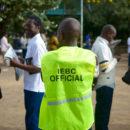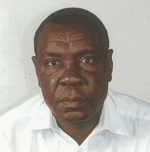Putting the Cart Before the Horse
The world holds its collective breath, and waits to see the repercussions of the ICC prosecutor’s request to indict President Bashir. Much is at stake, not least the court’s credibility. To pursue a prosecution as currently envisaged by the ICC, such a case must be winnable to preserve the integrity of this nascent organization and its future mandates. More pressing still, convictions, if achieved, must be accepted as credible within Sudan. However, the issue of credibility, albeit relevant, is premature, as is the clamour for legal intervention. While the vociferous demand recourse to the international court for undeniable atrocities, a civil war continues to rage in the Sudan as it has done so on and off for decades. Perhaps more attention should be paid to the voices calling for a peace process in advance of international legal intervention. Obtaining justice and closure for the countless victims of heinous atrocities perpetrated over many decades and by all sides in this interminable civil war, may well be predicated upon achieving sustainable peace and a subsequent return to law and order. Are well intended calls for justice in essence putting the cart before the horse? Moreno Ocampo’s request to indict Bashir and other Sudanese government officials might mean a prolonged wait for a suitable horse. It remains to be seen whether this delay might ultimately render the cart inoperable.
Nevertheless, the international community’s thirst for justice has prompted action, spurred on by the ICC. Professor Meierhenrich’s thorough explanation on the considerable restrictions imposed by the Rome Statute within international law which may adversely affect the outcome of this prosecution, casts considerable doubt whether a successful prosecution can be achieved. Overcoming the legal hurdles imposed by the Rome Statute, which supersede to some degree the more flexible interpretations of international law allowed by the Genocide Convention, will require Herculean efforts on the part of the prosecution team with little room for error. To date, the ICC’s initial maneuvers inspire little confidence in the process. What can at best be described as “˜clumsy’, Moreno Ocampo’s statement to the United Nations Security Council, invites concern rather than confidence in this forthcoming prosecution.
English may not be Moreno Ocampo’s mother tongue, but with so much at stake, and the high profile his position as Prosecutor for the ICC commands, this explanation for his incoherent rhetoric on the world stage is inadequate. Awkward from start to finish, his lamentably short introduction sets the tone for a statement which rapidly descends into repetitive rambling. Moreno Ocampo reminds us, no less than four times, that the international community has “an historic opportunity” to bring to justice the perpetrators of human rights violations in Sudan. Similarly, he overstates that “there can be no impunity” for those responsible for committing and condoning horrific crimes in Sudan. We got it the first time, on both counts. Later, he makes the incredulous, and ambitious claim that “the Council has the power to ensure the cooperation of the Sudan” in forthcoming prosecutions. How? Is he suggesting military intervention or worse still, contemplating the possibility of a bungled attempt to lift out indicted Sudanese government officials? It is difficult to imagine that Council members would volunteer to enforce cooperation by the Sudanese government. If this prosecution were to fail due to clumsy legal and logistical fumbling, the credibility of the ICC, and trust in the legal apparatus of international law would be resultant casualties.
Still, Moreno Ocampo does have a point. Impunity and immunity have reigned for far too long in Sudan (as they have done in other regions), and few would argue with the sentiment that justice is long overdue. But here is the rub. Moreno Ocampo’s statement is long on sentiment and short on coherent substance. Justice is not necessarily the outcome of law. Yet sentiment drives the international response to the crisis in Sudan, jettisoning logic in the process. Even social scientists who have charted the road traveled by former human rights- violating nations to human rights- adherers have been swayed by a rush of sentiment.
In light of her work, The Power of Human Rights, Kathryn Sikkink’s position in this forum comes as a surprise. This work’s quantitative study of the effect of human rights activism in bringing about positive change, acknowledges that according to their model, “success” was only achieved in one country, Uganda, where civil war was raging. This observation is further corroborated by Todd Landman’s quantitative study of human rights protection where he found a “strong relationship between involvement in civil war and the violation of human rights.” Conversely, Sikkink’s comment in this forum states that “we find that human rights trials after transition lead to improvements in human rights protection.” Confusingly she then goes on to argue that this remains the case “even in cases of civil war, though of course, civil wars do provoke increases in human rights violations.” There appears to be somewhat of a disconnect. Moreover, and significantly within the context of this debate, in The Power of Human Rights Sikkink concludes with the comment that “human rights campaigns should be about transforming the state not weakening it.” Is this not what critics of this forthcoming prosecution are arguing, and the ICC and its supporters risk achieving?
If we accept Sikkink and Landman’s findings that improvements in human rights are largely unachievable during civil war, should not the considerable energies of the international community be directed at resolving the conflict, rather than risk high-jacking this process through a premature legal process? Moreover, legal intervention at this stage risks “weakening” the state, not “transforming” it. The analogy of putting the cart before the horse is clear.
Still, each view voiced in this forum and further afield holds an element of truth. Dissecting John Stuart Mill on the subject of truth, Russell Muirhead writes: “The apparent conflict within truth makes truth hardly seem whole. If it is whole, it has many sides, a truth perhaps of many truths. Most individuals see only a single side…Yet the courage to live by a part that not many see can make the whole visible to others.” The current international response to the crisis in Darfur is impatient and seeing but one side. Caught up in justifiable anger, solutions to human rights abuses in Darfur such as those put forward by the ICC, are being waged with missionary zeal. Yet as contributors to this forum have demonstrated, there are many sides to this tragedy. Let’s hope that the courageous individuals within the region and beyond who “live by a part that not many see,” will ultimately “make the whole visible to others.” Peace should precede prosecution. Then the horse and cart will move forward together.
Heather Adams is a student of international human rights law.





